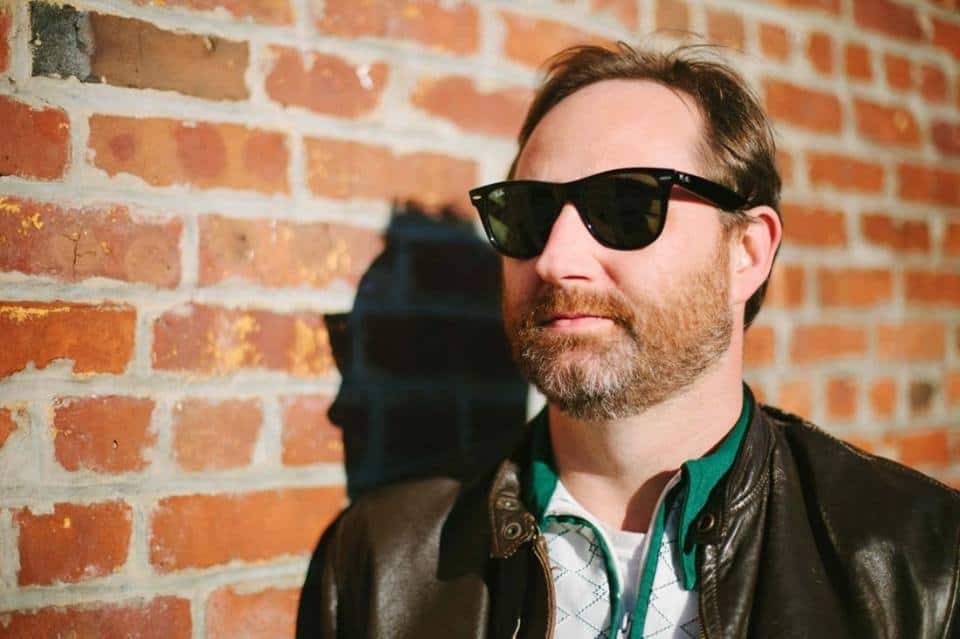Greg Cartwright of Reigning Sound to Play Hank’s March 29
Legendary garage rocker Greg Cartwright of The Reigning Sound will be playing a solo set on Friday, March 29 at the new Hank‘s Saloon in downtown Brooklyn.
Cartwright got his start in Memphis, Tennessee as a founding member of The Oblivions. He has also worked with Dan Auerbach of the Black Keys, Jack White’s supergroup The Raconteurs, and produced Mary Weiss of the Shangri-Las.
In the early aughts, he began The Reigning Sound, a favorite on the underground rock circuit and regional radio stations like WFMU.
For those seeking an entry point into Cartwright’s work, The Reigning Sound’s “Time Bomb High School” is a classic replete with melancholy, melody, and raucous pop-rock guitar crunch. The subsequent and aptly named release “Too Much Guitar” is a brutal, sonic assault on the ears guaranteed to raise hairs.
Today Cartwright calls Asheville, North Carolina home. As a father of three, he tours when he can. An avid record Collector he also runs Legba records, a shop, and a label.
The Star spoke to Cartwright recently in anticipation of his upcoming show.
SR: What’s different about your solo work versus The Reigning Sound?
GC: Having no band effects how I perform some of the songs. At its best, solo performance allows for more nuance in my delivery.
SR: Can you tell us about your songwriting “process?”
GC: Music is easy and words are hard. Writing about and being in the present is challenging. Songwriting doesn’t tend to be a uniform process; songs just come when they come. I just have to hope I’m tuned in enough to put’em on paper.
SR: When do you feel you’ve got a good tune?
GC: When someone tells me what I am saying contains truth. Validation is very helpful because judging the merit of your own work is nearly impossible.
SR: Are there early musical influences that you still draw from today?
GC: Absolutely. Harry Nilsson, The Stones, The Byrds. If I heard it and liked it- it’s still influencing me. SR: What are the music scenes in Memphis and Asheville like today?
GC: Memphis is a great place to start a band. Nobody cares what you’re doing so there’s very little pressure to conform. Asheville has become more reliant on the tourist industry. It doesn’t really foster originality, but there are still great local bands playing in very small rooms, like Fleetwoods, to locals. That is inspiring.
SR: Can you tell us about working with Dan Auerbach of the Black Keys?
GC: When he approaches a project, he does it with artists he genuinely admires. He searches for what shared influences he may have with the artist he’s producing. In this way, the two camps can immediately know they’re on the same page, and once an artist is comfortable like that, you’re going to get the best they have to give. He’s tremendously talented and capable.
SR: What’s your relationship with WFMU & the NY metropolitan area? I know you lived here briefly for a bit.
GC: I love the station. I love all free form, listener supported radio. I occasionally do shows for their Ichiban internet radio channel too, and there are several archives available at their website. I try to raise money and awareness for the station whenever I can. I also work at a listener-supported station in Asheville called Asheville FM and do a weekly program called “Deep Cuts with Greg Cartwright”.
SR: You’ve been doing this for a while. How have you seen the music industry change, and what’s your take on where it’s at today?
GC: The rise of streaming and the fall of physical manufacturing has really changed the way revenue is generated. Unfortunately, I don’t think it’s really benefited the artists in any substantial way. Publishing funnels more and more to the top earners. Artists are not known to be great bookkeepers, so for people of my generation, who started before the internet, it can all become very confusing. It’s evolving as we speak, so hopefully, we’re headed for something better. SR: Goals for the future?
GC: I want to keep making music, something useful, connective, and hopeful. I want people to be vigilant in their hopes and dreams and active in their communities. Music is just background noise if it’s not connecting people.
For more information on Greg Cartwright go to www.mergerecords.com









